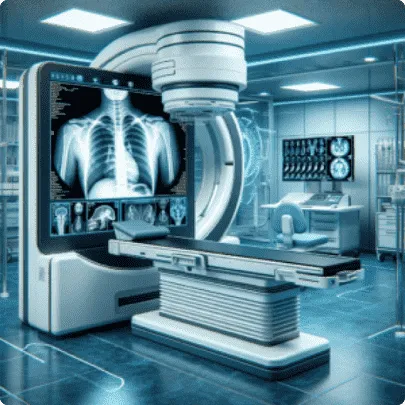Recognizing Signs & Symptoms of Laryngeal & Hypopharyngeal Cancers

Signs & Symptoms
Laryngeal and hypopharyngeal cancers often manifest through noticeable symptoms, including:
Expert Care for Vocal Health:
- Changes in voice quality or hoarseness
- Persistent sore throat
- Frequent coughing
- Painful swallowing or dysphagia
- Difficulty swallowing
- Ear discomfort
- Breathing difficulties
- Unexplained weight loss
- Neck lump (indicating potential spread to nearby lymph nodes)
Prioritize Your Vocal Health: If you experience any of these symptoms, don't delay seeking expert medical advice. Consult with Dr. Amit Chakraborty for comprehensive evaluation and personalized management of laryngeal and hypopharyngeal cancer concerns.
Understanding the Causes of Laryngeal and Hypopharyngeal Cancers
Causes
Several factors contribute to the development of laryngeal and hypopharyngealcancers

Alcohol Consumption
Several factors contribute to the development of laryngeal and hypopharyngealcancers

Tobacco Use
Several factors contribute to the development of laryngeal and hypopharyngealcancers

Gender Disparity
Men face a 4 to 5 times higher risk compared to women in developing these cancers.

Age
Individuals aged 55 and above are at a heightened risk, although younger individuals can also be affected.

Racial Factors
Both black and white populations exhibit a higher susceptibility to these cancers.

Dietary Factors
Poor nutrition, particularly diets low in vitamins A and E, can elevate the risk.

HPV Infection
Certain strains of the human papillomavirus (HPV) are associated with laryngeal and hypopharyngeal cancers.

GERD
Chronic reflux of stomach acid into the larynx and pharynx due to gastroesophageal reflux disease (GERD) can contribute to cancer development.

Occupation Hazards
Exposure to asbestos, wood dust, paint fumes, and specific chemicals at the workplace may increase cancer risk.

Genetic Syndromes
Individuals with genetic conditions like Fanconi anemia and Dyskeratosis congenital have a heightened susceptibility to these cancers.
Prioritize Your Vocal Health: Understanding these risk factors can empower individuals to make informed lifestyle choices and seek preventive measures. If you're concerned about any of these risk factors, consult Dr. Amit Chakraborty for personalized guidance and care.
Understanding the Causes of Laryngeal and Hypopharyngeal Cancers
Diagnosis:
Early detection significantly improves the chances of curing Laryngeal and Hypopharyngeal Cancer. Diagnostic methods include:
- Comprehensive Medical Evaluation: Your medical history and a thorough physical examination help in assessing potential symptoms and risk factors.
- Direct (Flexible) Laryngoscopy: This procedure involves using a flexible tube with a camera to examine the throat and larynx directly.
- Indirect Laryngoscopy: Through the use of mirrors, indirect laryngoscopy provides a visual examination of the throat and larynx.
- Penendoscopy: Another method for visualizing the throat and larynx, penendoscopy utilizes a thin, flexible tube equipped with a camera.
- Endoscopic Biopsy: Tissue samples are obtained during an endoscopic procedure to determine if cancerous cells are present.
- Fine Needle Aspiration (FNA) Biopsy: This procedure involves extracting cells from suspicious areas in the throat using a thin needle for examination under a microscope.
- Imaging Tests: CT scans, MRI scans, X-rays, and PET scans are utilized to visualize the extent of the cancer and aid in treatment planning.
Take Control of Your Health:
Early detection is key to successful treatment. If you're experiencing any symptoms or have concerns about your throat health, connect with Dr. Amit Chakraborty for personalized diagnosis and care.

Tailored Treatment for Laryngeal and Hypopharyngeal Cancer
Types of Treatment
The approach to treating Laryngeal and Hypopharyngeal Cancer varies based on the stage and severity of the disease.
Laryngeal Cancer Treatment
Stage 1

At this early stage, options may include endoscopic surgery or radiation therapy to target the cancerous cells.
Stages 2 and 3

More advanced stages may necessitate complete removal of the larynx, either through radiation therapy alone (without surgery) or partial laryngectomy.
Advanced Stage

For advanced cases, a combination of surgery, radiation therapy, and chemotherapy is often employed to combat the cancer effectively.
Hypopharyngeal Cancer Treatment
Stage 1

At this early stage, options may include endoscopic surgery or radiation therapy to target the cancerous cells.
Stages 2 or Advanced

More advanced stages may necessitate complete removal of the larynx, either through radiation therapy alone (without surgery) or partial laryngectomy.
Your Path to Recovery Starts Here: If you've been diagnosed with Laryngeal or Hypopharyngeal Cancer, Dr. Amit Chakraborty offers personalized treatment plans tailored to your specific condition and needs.
Comprehensive Laryngectomy Procedures
Preserving Vital Functions

Laryngectomy, a surgical intervention aimed at removing part or all of the larynx (voice box), plays a crucial role in treating Laryngeal cancer. Here are the main types of Laryngectomy surgeries:
- Partial Laryngectomy (Half Voice Box Removal): This procedure involves the selective removal of a portion of the voice box to maintain the patient's voice. Typically, one vocal cord and part of another are excised. Partial Laryngectomy not only preserves speech but also facilitates normal swallowing function, significantly enhancing the patient's quality of life.
- Total Laryngectomy (Full Voice Box Removal): In cases of advanced-stage LarynxCancer, a Total Laryngectomy may be necessary. This extensive procedure entails the complete removal of the larynx. Following surgery, a permanent stoma (tracheostomy) is created to facilitate breathing. Although swallowing function remains largely intact initially, long-term solutions such as an Artificial Voice Box may be required to aid in speech and swallowing.
- Artificial Voice Box: For patients undergoing Total Laryngectomy, an Artificial Voice Box becomes indispensable. This device, powered by batteries, generates sound to restore voice function post-surgery. With proper training from a Speech and Language therapist, patients can effectively utilize the Electrolarynx to communicate and swallow comfortably.
Your Journey to Recovery Starts Here: At Dr. Amit Cancer Care Clinic, we offer state-of-the-art treatment options, including Partial and Total Laryngectomy, to combat Laryngeal and Hypopharyngeal Cancer. Our commitment to excellence ensures adherence to the highest medical standards for the diagnosis, treatment, and prevention of cancer. Take the first step towards reclaiming your health.
FAQs
-
Q: What is laryngeal cancer?
Laryngeal cancer develops in the larynx, which is located in the front of the neck. It can affect the vocal cords, voice box, and surrounding tissues
-
Q: What are the symptoms of laryngeal cancer?
Common symptoms of laryngeal cancer include hoarseness, a sore throat that does not heal, ear pain, and difficulty swallowing
-
Q: How is laryngeal cancer diagnosed?
Diagnosis typically involves a physical examination, imaging tests such as CT scans or MRI, and a biopsy to confirm the presence of cancerous cells
-
Q: What are the stages of laryngeal cancer?
Laryngeal cancer is staged using the TNM system, which assesses the tumor size (T), the number of lymph nodes affected (N), and whether the cancer has metastasized (M). This helps determine the appropriate treatment.
-
Q: What is the survival rate for laryngeal cancer?
The 5-year survival rate for laryngeal cancer varies based on the stage at diagnosis. Early-stage cancers have a higher survival rate compared to more advanced stages
-
Q: Should I get a second opinion?
Yes, patients are encouraged to seek a second opinion to ensure they have considered all treatment options and are comfortable with their chosen course of treatment
